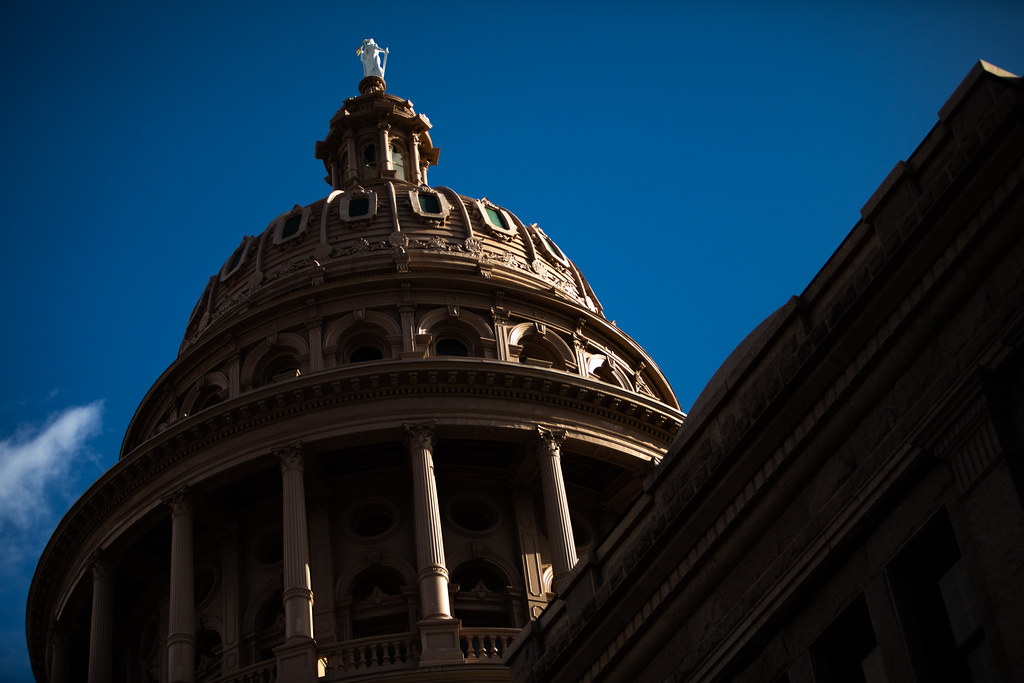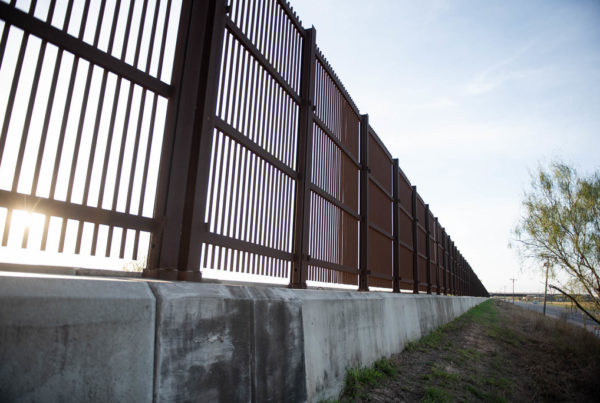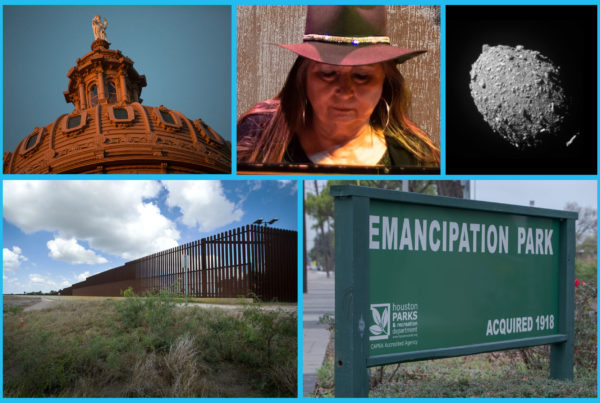From November midterms to the Uvalde school shooting and the response to the Roe v. Wade ruling, it’s been a busy year in Texas politics. As 2022 draws to a close, the Texas Standard is here to review some of the top political stories. For more on that and what we can expect from state leaders in 2023, the Standard was joined by James Barragán, political reporter for The Texas Tribune, and Niki Griswold, state politics reporter at the Austin American-Statesman.
This transcript has been lightly edited for clarity:
Texas Standard: I think we have to begin with the November election. There were a lot of predictions about changes, especially in South Texas; At the national level, there were major predictions about a red wave that didn’t ultimately didn’t ultimately crash ashore, at least on the national stage. Niki, what did you make of how the election process went here in Texas?
Niki Griswold: In my view, I think how we saw the election play out really shows that redistricting went the way that Republican lawmakers intended it to go. When lawmakers redrew those district lines the previous legislative session, they really ensured that there wouldn’t be many battleground districts in the state. They very much protected incumbents and limited those swing districts. I think we saw Republicans come to a pretty overwhelming win across the state with there being maybe one or two surprises. Overall, I think the biggest surprise, at least for me, was turnout not reaching really close to what it got to in 2018.
James, what was your takeaway?
James Barragán: We definitely saw the status quo of Texas politics continue in that there was a continued Republican domination of all things Texas politics. As Niki said, the redistricting that happened in the last legislative cycle definitely led to a lot of incumbent protection. So if you had a Democrat that was your representative or you had a Republican who was your representative, it’s likely still pretty much the same person.
One thing that was interesting to me was South Texas and how much investment there was there on a national level saying, “hey, we’re coming to take those three South Texas congressional districts,” that they were targeting. At the end of the day, they took one of them, which had been heavily redrawn to favor Republicans. But Democrats showed that they still hold dominance over South Texas. I do think it put them on alert to say, hey, Republicans can compete down here. They’re going to. Even though that’s competitive and maybe bad for Democrats, I think it’s good for voters to have those options and to be reminded that, “hey, there is another party there.”
Do you think we’re going to be back in South Texas talking about that as the chief battleground come the next election cycle, James?
James Barragán: I think it all depends on how much money the Republican Party nationally and in the state is willing to spend down there. They did have other victories down the ballot with flipping a House district for the Texas House and making a very competitive Senate district in Senate District 27 up the Rio Grande Valley and then Nueces County. So, I think there are encouraging signs for Republicans. But in the next election cycle, what I’m looking at is: Are they going to want to spend money down there again?
Niki, one of the statewide offices that there’s been a lot of interest in was incumbent Attorney General Ken Paxton’s. He’s been frequently in the news for legal troubles. A lot of folks, in the lead-up to the election, were saying this might be a place where Democrats had a chance of flipping the seat in their favor, given all of the legal woes. Why didn’t that happen? It’s my understanding that he defeated Democrat Rochelle Garza by something like 10 percentage points.
Niki Griswold: He did, indeed. I think we saw pretty clearly in the primary that the Republican Party in Texas was most deeply concerned about the attorney general’s race when it comes to the party’s vulnerabilities statewide. We saw former Texas Supreme Court Justice Eva Guzman, state Land Commissioner George P. Bush and Congressman Louie Gohmert all mount challenges to Paxton. But Paxton was able to fend them off.
I think what that shows is that those base Republican voters are pretty happy with Paxton’s performance as attorney general, mounting lawsuit after lawsuit against the Biden administration fighting to overturn the 2020 election results. His various legal woes have been ongoing since 2015, and I think voters’ attention has moved on. It’s a little bit saturated at this point and difficult even for us in the media to keep up with all the various lawsuits he’s facing. So, I think the way he was able to represent the interests of the base really led him to victory.
What issues ended up being the most important to voters from what you can tell, James?
James Barragán: Border security and immigration are constantly the No. 1 issue for Texas voters. It’s their top-of-mind issue. If you look at polling time and time again, that is their top priority. And that was mirrored by the Republican candidates that we saw from the top – Gov. Greg Abbott, Lt. Gov. Dan Patrick, even Attorney General Paxton – they really pushed that.
They also pushed the economy and inflation. A lot of people worried about inflation and how their dollar is not going as far as it used to; they’re worried about the economic outlook for next year. And those issues really resonated with people. Other issues like abortion and guns were issues that Democrats were very interested in, given the news of the year with the Roe v. Wade ruling and with Uvalde, but those issues resonated less on a day-to-day level with Texas voters.
Niki, we are just days away from the start of a new legislative session. What do you think we might be seeing as a theme of this upcoming legislative session? Has anything emerged in the run-up based on what you’ve been hearing?
Niki Griswold: Absolutely. I think the biggest focus, at least if the Legislature follows the lead of the governor, will be on property taxes: property tax reform, property tax relief. The governor has made it very clear that he wants to use up to half of the budget surplus to bring property taxes down for homeowners in the state.
I also anticipate public education to be a big issue this session that’s tied into the property tax fight. How do we continue to fund our schools and give them increased budgets to give their teachers raises and invest in school security? How can we do all that while also lowering property taxes? I think that’s going to be the big issue lawmakers tackle this session.
James, what do you see for the upcoming legislative session?
James Barragán: Well, I do agree with all the things that Niki has already said. I also think that border security is going to be a big one. We’ve talked a lot about Operation Lone Star, about the money we spent on the border —$4 billion. That’s a big price tag.
So, it’s going to be interesting to see whether lawmakers are going to sign up for that again and for sending thousands of National Guard troops and DPS troopers down there. That’s expensive. They say they need it and obviously the numbers show that. But that’s, I think, going to be one of the big fights.
My wild card is the fight on the opioid crisis. There’s all this talk about legalizing fentanyl testing strips. There’s this talk about getting more Narcan out there to reverse opioids. And I think that’s going to be like a dark horse legislation that is, frankly, good public policy.
Niki, I have to ask you about any wild card you might have. Do you think there’s something that folks aren’t prepared for that we’re going to see in this session?
Niki Griswold: I don’t know if folks aren’t necessarily prepared for this, but what I’m really looking to see is how much the Uvalde mass shooting is top of mind for lawmakers this session. Democrats, especially state Sen. Roland Gutierrez, have made it very clear that they plan on spending this session fighting for the families of the victims in that shooting.
Many of those families have made it very clear that they want to see significant action on gun control measures that Republicans, by and large, don’t support. So what will that focus turn to? Will there be an investment in the state’s mental health infrastructure, or will there be an investment of funding for school security measures? I’m interested to see how that conversation between Democrats and Republicans plays out and where those resources are funneled.










